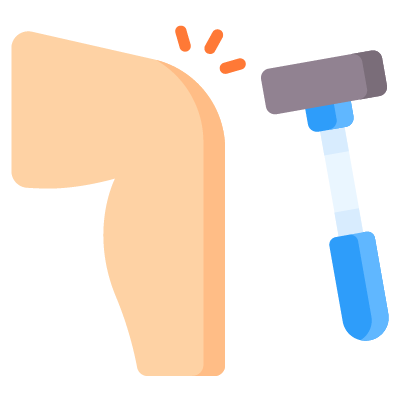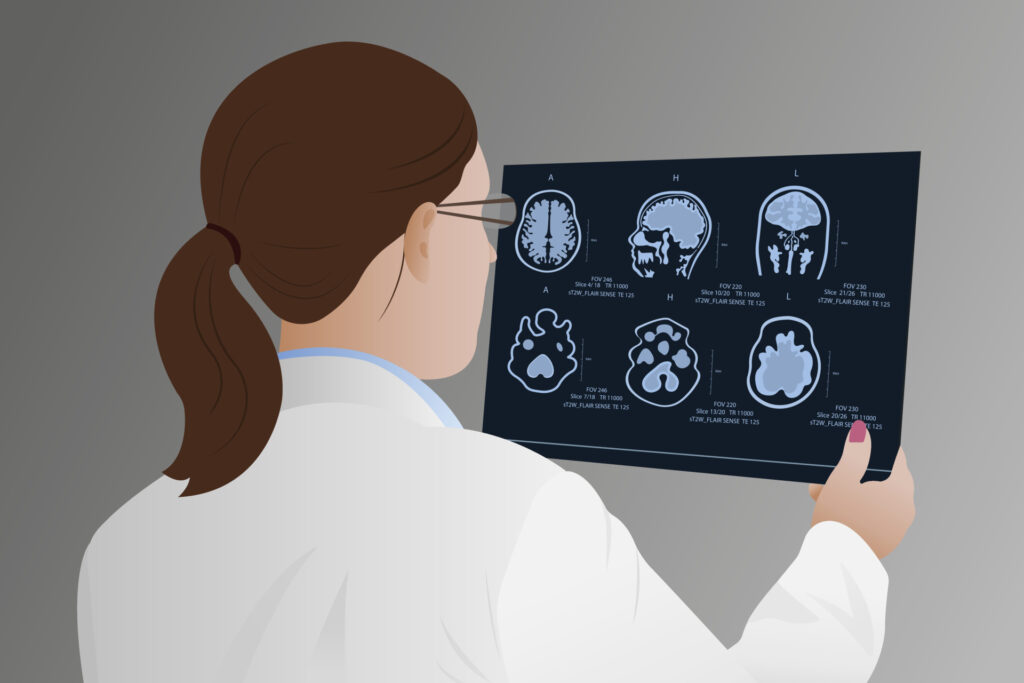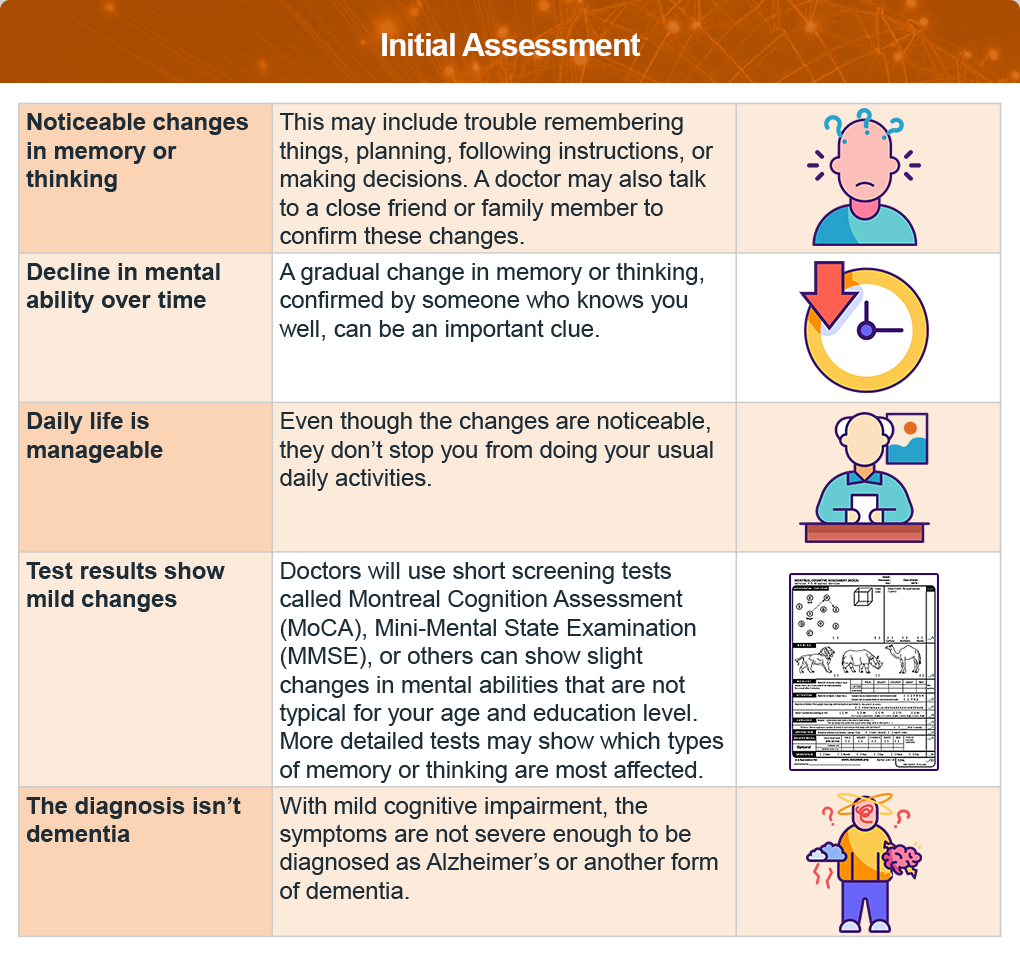Checking for Cognitive Decline
As we grow older, it’s natural for changes to occur throughout the body including the brain. Because of this, some people may find that they don’t remember things as easily or recall information as quickly as they used to. They might occasionally lose track of items or forget to make a monthly payment. These are typically signs of mild forgetfulness and not necessarily a cause for concern or an indication of a serious memory issue.
It is important to talk to your doctor if you are experiencing noticeable changes in your memory. A doctor can perform tests and assessments to help determine the source of memory problems. Your health care provider may also recommend that you see a neurologist, a doctor who specializes in treating diseases of the brain and nervous system.
How Can Cognitive Decline Be Identified?
Sometimes, family and friends are the first to notice small memory lapses or changes in thinking. The person experiencing these changes may also start to worry about their memory. These concerns are a good reason to talk with a doctor. In many cases, memory or thinking problems can be caused by treatable conditions, so it’s important not to ignore them. A doctor can do tests to help figure out what’s causing the changes. They may also recommend seeing a specialist for a more detailed evaluation. This can help determine whether the cause is something manageable or possibly mild cognitive impairment.
Neurological Exam
This checks how well your brain and nervous system are working. It can help rule out other conditions that affect memory, such as strokes, Parkinson’s disease, or brain tumors.
The exam may include:

Checking your reflexes

Watching your eye movements
Evaluating your walking and balance
If MCI may be linked to early Alzheimer’s disease, your doctor may order tests to look for specific biomarkers to confirm signs of Alzheimer’s in the body.
Laboratory Tests
Blood tests can check for physical causes of memory problems, like low vitamin B12 or thyroid issues. Some blood and fluid tests can look for proteins linked to Alzheimer’s disease. A small sample of the fluid surrounding your brain and spinal cord may also be tested for these proteins.

Brain Imaging
The doctor may recommend MRI or CT scans to look for problems like strokes, tumors, or bleeding in the brain. A PET scan may help detect signs of Alzheimer’s disease, such as protein buildup in the brain.
Mental status testing
A number of tests are available that may be administered in the doctor’s office or remotely. They include short tests (10 minutes or less) and consist of questions like the date or give simple instructions to follow. Longer, more detailed tests compare your memory and thinking skills to others your age. These can help show which areas are affected and may offer clues about the cause of symptoms.
If you or a loved one are concerned about cognitive changes, please consult a healthcare professional for assessment and guidance.
Source
- Mayo Clinic. Mild Cognitive Impairment (MCI) (www.mayoclinic.org/diseases-conditions/mild-cognitive-impairment/diagnosis-treatment/drc-20354583).
Accessed on September 22, 2025.


